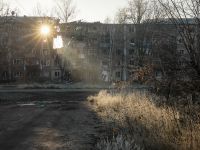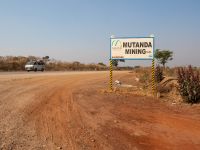Israeli and the Palestinians headed for talks in the United States after nearly three months of deadly unrest, guarded about the prospects of reviving their troubled peace process, against a backdrop of high political drama in Israel.
Israeli Foreign Minister Shlomo Ben Ami said Monday there were no guarantees the first major push for peace since violence erupted in September would lead to an accord before Israelis vote in early 2001 for a new leader.
In a blow to right-winger Benjamin Netanyahu's bid to retake Israel's top job, the Israeli parliament rejected early Tuesday a bill to dissolve the 120-member Knesset and hold early elections.
Earlier, it had given its approval to a bill to allow all citizens to stand for prime minister, allowing Netanyahu to run, but the front-runner in opinion polls had insisted he would not run unless there were also general elections.
Netanyahu was barred under prior election law from contesting the leadership race because he is not a sitting MP.
Meanwhile, the death toll continued to mount, with a top Palestinian police officer killed Monday when a shell blew up in his face and a member of Palestinian leader Yasser Arafat's Fateh faction found stabbed to death.
Negotiators from the two sides were expected to meet separately with US officials starting early Tuesday, with US President Bill Clinton anxious to strike a deal before leaving office in January.
Ben Ami will lead the Israeli delegation, while culture and information minister Yasser Abed Rabbo, senior negotiator Saeb Erakat and Gaza Strip security chief Mohammed Dahlan will lead the Palestinian contingent.
"There is no certainty that we can reach an accord before the election. We can only commit ourselves to making every effort to verify the possibility of reaching such an agreement," said Ben Ami.
Erakat said there were no new US or Israeli proposals for a final status agreement, warning there would be no peace until Israel abided by international resolutions calling for refugees' right of return and a withdrawal to 1967 borders.
Diplomatic sources, speaking on condition of anonymity, said the talks could take place at Bolling Air Force Base in Washington.
The sudden resignation eight days ago of Israeli Prime Minister Ehud Barak has forced a special leadership election in February, sparking the political drama in the Knesset early Tuesday.
A grim Netanyahu had insisted he would only run if legislative elections were held in parallel with the leadership vote, reluctant to take the helm of a fragmented and unruly Knesset.
"(If parliament does not dissolve) I will not be a candidate," said Netanyahu, the front-runner in opinion polls against both Barak and his successor as Likud leader, Ariel Sharon.
Meanwhile, Sharon said Monday that if he were to become prime minister, he would not recognize any agreements signed by Barak.
"Barak does not have the right to sign an accord. He has resigned and his resignation has come into effect," Sharon told Israeli television.
Sharon said if an agreement was reached, "it will not be implemented."
Barak, his government crippled by the unrest, wants to forge a peace deal that may help him win at the ballot box, while Netanyahu has said he is opposed to any concessions to the Palestinians.
The US talks are taking place two months after Barak declared a "time-out" in the seven-year Oslo peace process and despite his previous insistence that the violence must stop before negotiations can resume.
There is speculation of a summit between Barak and Arafat, who said Sunday he would be ready to meet with the embattled Israeli leader.
"I don't know if there is going to be a three-way meeting (but) it is very possible," Palestinian negotiator Saeb Erakat told Voice of Palestine radio.
Arafat is due in Egypt Tuesday before heading for the US talks.
Hardline Palestinian opposition groups said the talks would only serve the interests of the Jewish state.
"The resumption of talks with Israel, sponsored by the US and in the context of Israeli massacres, is a betrayal of the intifada," said an official with the Damascus-based Popular Front for Liberation of Palestine (PFLP).
And sporadic violence flared again in the occupied territories on Monday.
In Gaza City, Abdel al-Mohti al-Sabaawi, 55, the right-hand man of Palestinian police chief Ghazi Jibali, was killed while trying to defuse an unexploded Israeli shell.
Fatah activist Rashid Abu al-Hassan, 34, was found stabbed to death near a refugee camp on the outskirts of Tulkarem in the northern West Bank in what the movement branded another "assassination" by Israel -- JERUSALEM (AFP)
© 2000 Al Bawaba (www.albawaba.com)







